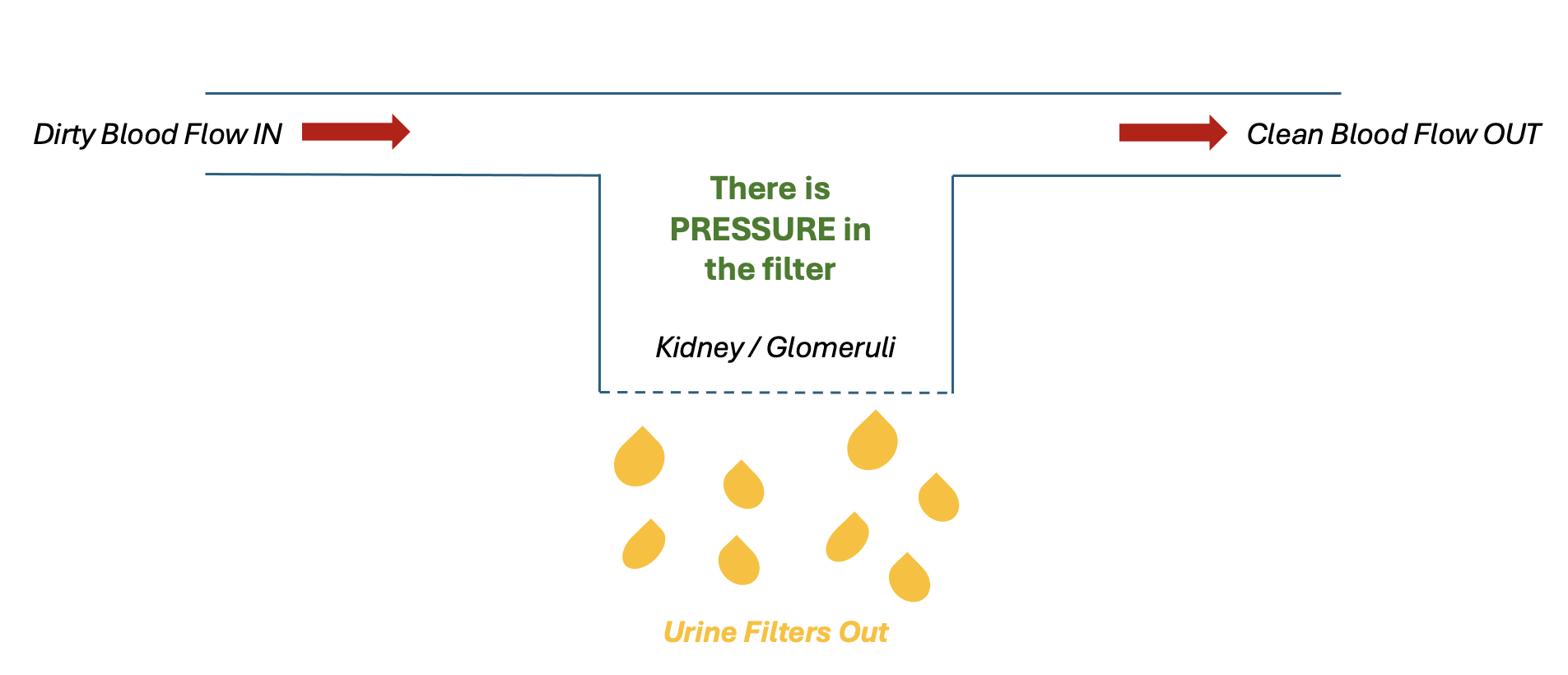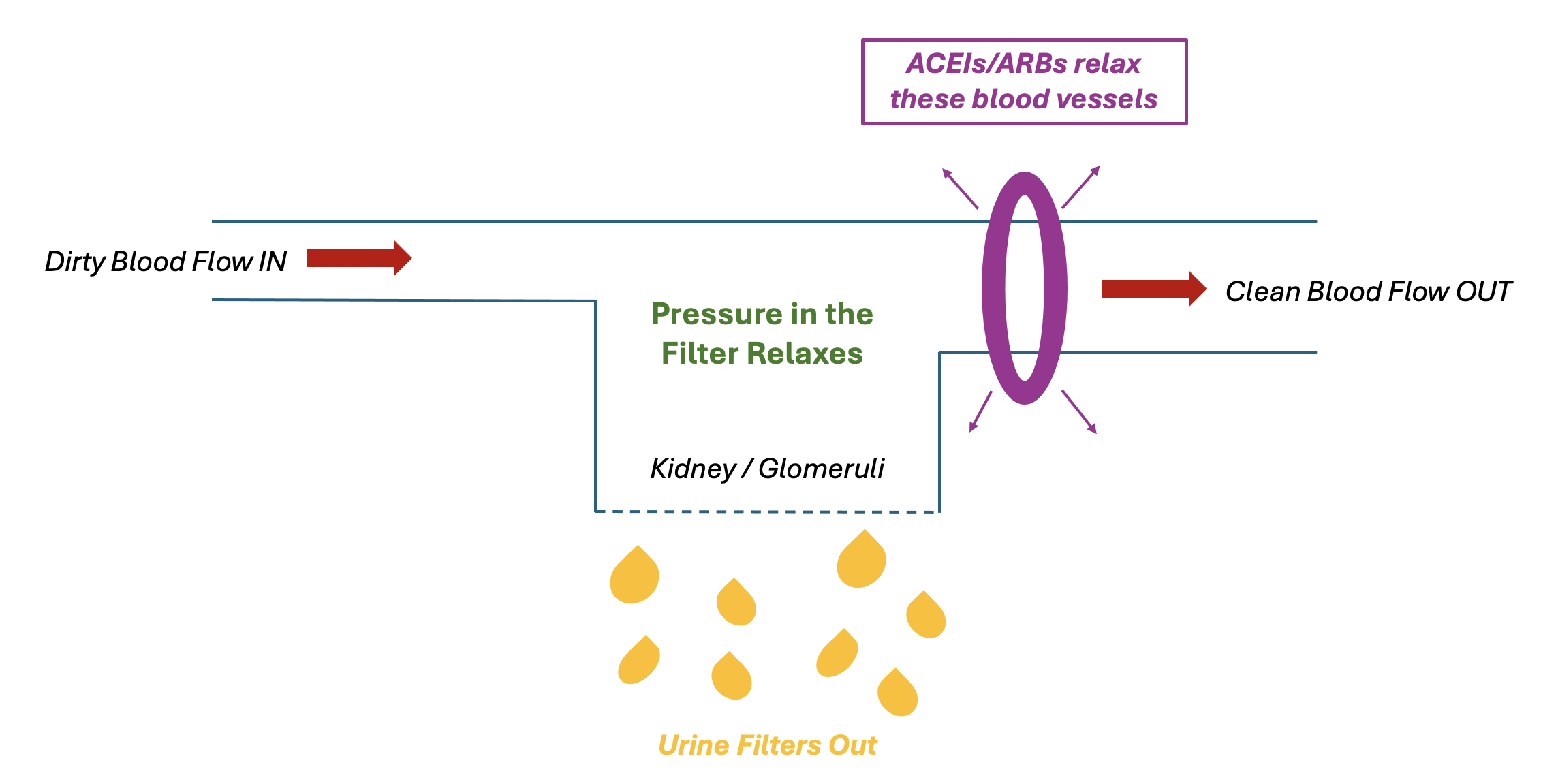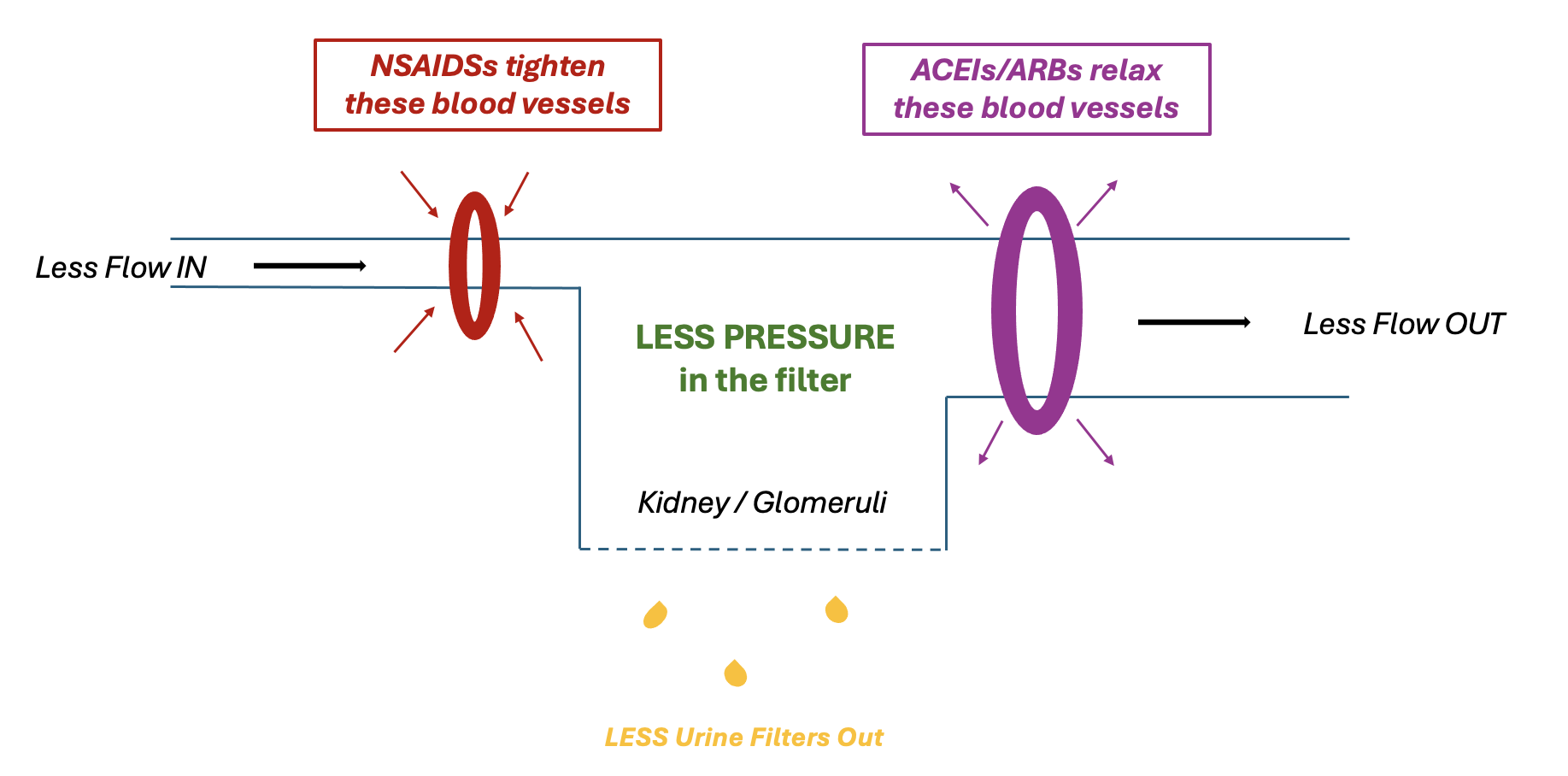Anti-Inflammatories + Blood Pressure Medications
NSAIDs with ACEIs and ARBs
What to these terms mean?
“NSAID” – stands for “Non-Steroidal Anti-Inflammatory Drug”. These are a group of medications that help reduce pain, inflammation, and fever. They are commonly used to treat things like headaches, muscle aches, arthritis, and other types of pain. They are also used to treat fevers.
They work by blocking certain substances in your body that cause pain and inflammation.
Common Examples:
- Ibuprofen (Advil, Motrin)
- Naproxen (Aleve)
“ACEI” – stands “Angiotensin-Converting Enzyme Inhibitor”. These are a type of medication that helps lower blood pressure and protect your heart and kidneys. They are commonly prescribed for conditions like high blood pressure, heart failure, and certain types of kidney problems.
They work on a kidney hormone system to relax and widen your blood vessels, making it easier for blood to flow through them. This reduces your blood pressure.
Common Examples:
- Ramipril
- Perindopril
- Lisinopril
- Enalapril
- Fosinopril
- Trandolapril
“ARB” – stands for “Angiotensin II Receptor Blocker”. These are another type of blood pressure medication very similar to “ACEIs”. They also help lower blood pressure and protect your heart and kidneys.
They also work on the kidney hormone system. ARBs work by blocking a chemical in your body that causes your blood vessels to tighten. This helps relax and widen your blood vessels, making it easier for blood to flow and lowering your blood pressure.
Common Examples:
- Candesartan
- Irbesartan
- Losartan
- Valsartan
- Telmisartan
- Valsartan
How the kidneys work:
Your kidneys are the body’s natural filters, cleaning your blood to keep you healthy. Inside each kidney, there are tiny filtering units called glomeruli (say it like “glom-air-you-ly”). These are very small but very powerful filters.

- Blood Flow: Blood flows into your kidneys, carrying waste and extra water that your body doesn’t need.
- Filtering: The blood passes through the glomeruli, which act like a sieve or a strainer. The glomeruli let the waste and extra water pass through, but keep the important stuff, like blood cells and proteins, in your bloodstream where they belong.
- Waste Removal: The waste and extra water that pass through the glomeruli then move on to become urine, which your body gets rid of when you go to the bathroom.
In simple terms, your glomeruli help sort out what your body needs to keep and what it needs to throw away, keeping your blood clean and your body healthy.
How ACEs and ARBs protect the kidney:
ACEs and ARBs relax the blood vessels that leave the kidneys.
This helps ‘take some pressure off’ the kidneys. This protects the kidneys in the long term.

How NSAIDS + ACEs/ARBs stop the kidney from filtering:
NSAIDs tighten the blood vessels that enter the kidneys.
When combined with the effect of ACEs or ARBs, this leaves the kidney filters with less blood flow and less pressure. If severe enough, this can kidneys can no longer filter (clean) your blood!

Avoid taking NSAIDs and ACEIs/ARBs together:
ACEIs and ARBs are very good medications that help lower blood pressure, prevent heart problems, and prevent kidney problems. That’s why many people need to take them.
But it’s also common to need to take anti-inflammatory medications (NSAIDS) from time to time for injuries or flares of pain.
Fortunately, it’s generally okay to stop your ACEI or ARB medication for a short period. Yes, your blood pressure may go up slightly, but this will just be short term. This will generally not cause harm in the long term.
- If you need to take anti-inflammatory medications (i.e. Ibuprofen, Advil, Motrin, Naproxen, Aleve) for a few days or a couple of weeks,
- Then simply stop ACEI or ARB medication for those days. Restart after you are done taking the anti-inflammatory pills.
[If in doubt, be sure to confirm with your doctor]
